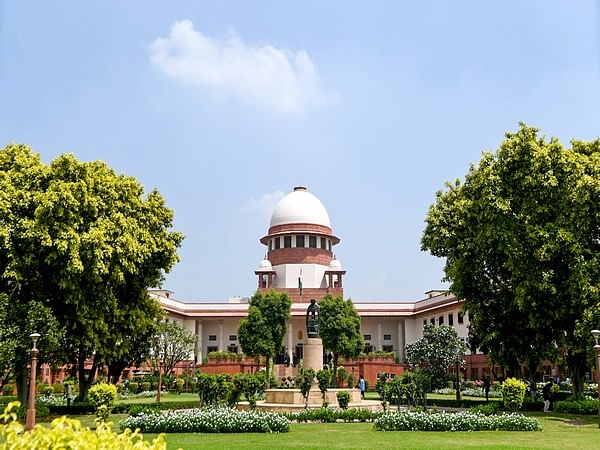New Delhi [India], September 20 (ANI): A Constitution bench of the Supreme Court said it would hear on October 11 a plea against the practice of ex-communication in the Dawoodi Bohra community.
A bench headed by Justice Sanjay Kishan Kaul decided to examine whether the practice of ex-communication in the community can continue as a “protected practice” despite the Maharashtra Protection of People from Social Boycott (Prevention, Prohibition and Redressal) Act of 2016 has already come into force.
Solicitor General Tushar Mehta told the bench also comprising Justices Sanjiv Khanna, AS Oka, Vikram Nath and JK Maheshwari that the matter is related to religious freedoms and should be further referred to the bench which will hear the Sabarimala issue.
Senior advocate Fali Nariman appearing for one of the parties in the case said the questions posed in the case have become “moot” with the enforcement of the 2016 Act, which has repealed the Bombay Prevention of Excommunication Act of 1949.
“The 2016 Act provides a remedy to all victims of social boycotts. A complaint can be lodged with the nearest Magistrate in case of apprehension of a social boycott by a religious body. If any member of a community is subject to ostracisation, please file a complaint. Excommunication is not legally feasible now,” said Nariman.
Senior advocate Siddharth Aggarwal, appearing for the petitioners, however, said that a general law on social boycott may not protect the Bohra community members facing ex-communication.
Aggarwal said that the 2016 Act was a Maharashtra law and the “practice may not be confined to Maharashtra”.
The Constitution bench was a hearing case filed by the Central Board of Dawoodi Bohra Community in 1986 to re-consider and over-rule the 1962 judgment of another five-judge bench.
The 1962 judgment came on a challenge by Syedna Taher Saifuddin, the head of Dawoodi Bohra Community to Bombay Prevention of Excommunication Act, 1949 on the ground that the provisions of the Act infringe Articles 25 and 26 of the Constitution.
Syedna’s contention was that the Act infringed upon his constitutional freedom of religion by curtailing his right, as the religious head, to discipline the community by casting out “errant” members.
The 60-year-old verdict of the Supreme Court had regarded ex-communication as a legitimate practice of a community that had to be protected under Article 26 of the Constitution, which grants individuals the freedom to manage religious affairs.
The Supreme Court had concluded that the 1949 Act was unconstitutional.
In 1949, in what was then Bombay Province (that included the states of Maharashtra and Gujarat), the State government passed the Bombay Prevention of Excommunication Act, 1949, with the objective to protect the civil, social, and religious rights of those excommunicated by their own communities.
In 2016, the Maharashtra Legislative Assembly passed the Act identifying 16 types of social ostracisation and made them illegal, punishing the perpetrators with imprisonment for upto three years. One among the 16 deals with the expulsion of a member of a community. (ANI)
This report is auto-generated from ANI news service. ThePrint holds no responsibility for its content.



